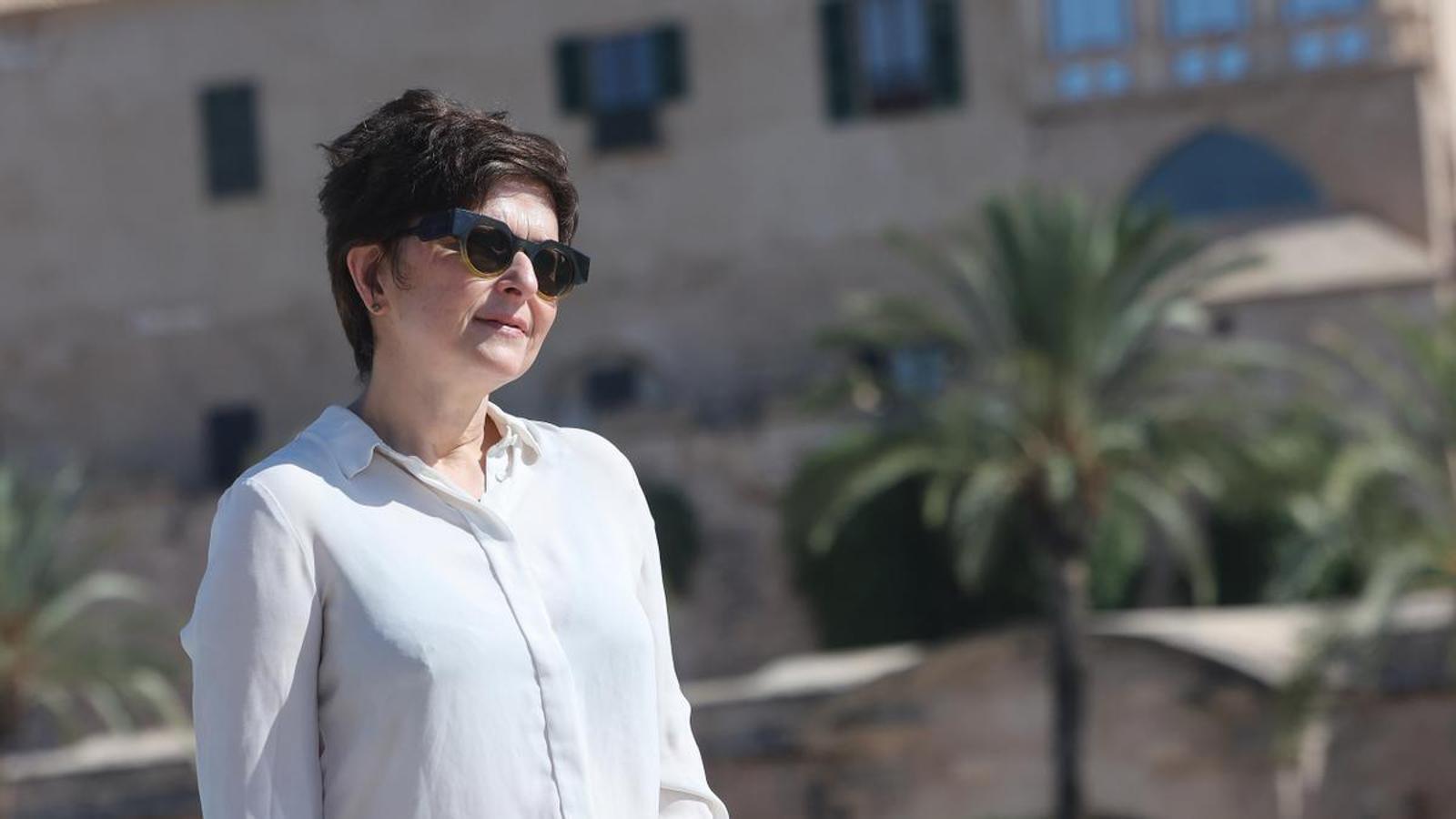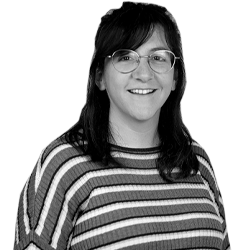Sepideh Farsi: "Gaza will change the way we understand the world."
Filmmaker. Premieres the documentary "Put Your Soul on Your Hand and Walk" at the Atlántida Film Fest.


Palm"What do you feel, as a Palestinian living in Gaza?" asks Iranian filmmaker Sepideh Farsi (Tehran, 1965). "Immense pride. We are a brave and strong people, and no matter what happens, we will be happy and live our lives, as we have done until now," replies young photojournalist Fatima Hassouna. The conversation is part of the documentary. Put your soul on your hand and walk, released in the Atlantis Film Fest Palma and made from a year of long-distance conversations between the two. The day after learning that the film had been selected for the Cannes Film FestivalFatima Hassouna and her family were killed in an Israeli attack on April 16.
How is it presenting the film, traveling around the world with it, now that Fatima is gone?
— It's quite strange. On the one hand, I'm very happy every time I watch the film because I feel like I'm with her, but, of course, at the same time, it's very sad. She should be here. And since I haven't seen her remains or anything, in a way, it's as if I haven't really accepted that she's dead yet, as if she's still there for me. The only thing left for me, anyway, is to share what we did together.
The documentary begins with their first conversation, via videoconference. Did you know from the very beginning that you would make a film?
— Yes, I knew right away. They were unique conversations, and every moment had to be captured. I guess it's a matter of instinct, after so many years of making films. What I didn't know was what the final form of the film would be, and it took me months to figure it out. I doubted whether the viewer would endure two hours with almost only his face on the screen, but then I saw clearly that they would.
Fatima's face is mostly a big smile, radiating light. It's surprising to see all this vitality and joy in Gaza today.
— I would describe her as a luminous person, yes. I think it has to do with a certain innocence, perhaps, but also with very serious qualities. She was very young but also very wise; there's an absolute and rigorous awareness of the situation. In fact, this is also reflected in her photographs.
That they are from a destroyed place where there is still life.
— Yes, they have a sweetness that overcomes. But that's what we are, people; that's what makes us unique, human beings who find beauty even in the worst of situations, like Anne Frank did. But that's precisely why I can't understand why there are people willing to destroy it. The people who live in Gaza are exactly like us.
This is the main theme of the documentary, in fact.
— Why do Netanyahu and his far-right friends want to eliminate all these people like us? Don't they have enough land? And now we're starting to see young Israelis wanting to leave their country because it's become a terrible place to live. They're not just killing Palestinians, they're turning Israelis on.
One of the issues that often comes up in your conversations is the possibility of leaving Gaza, an option Fatima rarely considers. In your case, you left Iran at a young age and haven't been able to return. Did you understand Fatima's position?
— I thought about this possibility every day, all year long, because I was so worried about her. And I wondered if I could help her get out. And if I could, would she want to? And if she left Gaza, what would happen? If she had to leave her family there and something happened to them, would she end up angry with me?
In the last conversation he raises the possibility of going to Cannes.
— Yes, and before I knew he was dead, I spent a lot of time thinking. I remembered when the movie came out. Silvered water, which was co-directed by a Kurdish filmmaker, Wiam Simav Berdixan. She left Syria for Cannes, and I distinctly remember her sitting on the floor, motionless, in a state of shock at everything around her. How Fatima experienced it is something we'll never know.
What do you think of the announcement made by countries like the United Kingdom and France, who say they will recognize the state of Palestine in September if Israel does not accept a ceasefire?
— I don't know what to think. Why aren't they doing it now? Why didn't they do it two years ago? What exactly has changed? They say diplomacy is a different time, but in humanitarian emergencies like the one in Gaza, there should be no excuses, there should be justice. If you look at the Declaration of Human Rights, every single one of these rights is being violated right now in Gaza. Every single one. We'll see what happens in September, but what is certain is that the civilians who died will never come back. And everything is very slow. And it's already too late.
Faced with this, what can we, the anonymous, do? This Thursday, in fact, More than forty towns in Mallorca have taken to the streets to demonstrate together against genocide., in a historic call.
— Well, this is very important; it's what we must do. We must take to the streets and protest, and we can also boycott certain products. Recently, the United Nations rapporteur Francesca Albanese has published an article listing all the companies that are profiting from genocide. And I'm clear that I don't want to buy products that come from the illegal occupation of a territory and the deaths of innocent people, and I do the same with those who profit from the war in Ukraine. Our individual actions are very important. And taking to the streets is necessary. And useful.
Now that you've talked about Ukraine: at one point in the documentary, Fatima says that when the war in Gaza ends, all the wars in the world will end. But you don't entirely agree, do you?
— She was perhaps more optimistic than I was [smiles]. But I do believe that this genocide is a turning point in world politics. It has allowed us to see how everything is connected, and how countries like Israel have ceased to be democratic states. If journalists can end up dead or in prison, we can't talk about democracy, just as we can't in Iran or Russia. Added to all this is the loss of freedom of expression, which we're already seeing in the United States and which we're beginning to see in Europe as well. Fatima said that all wars would end, and I wish that were the case, but I believe Gaza will change the way we understand the world.
—
